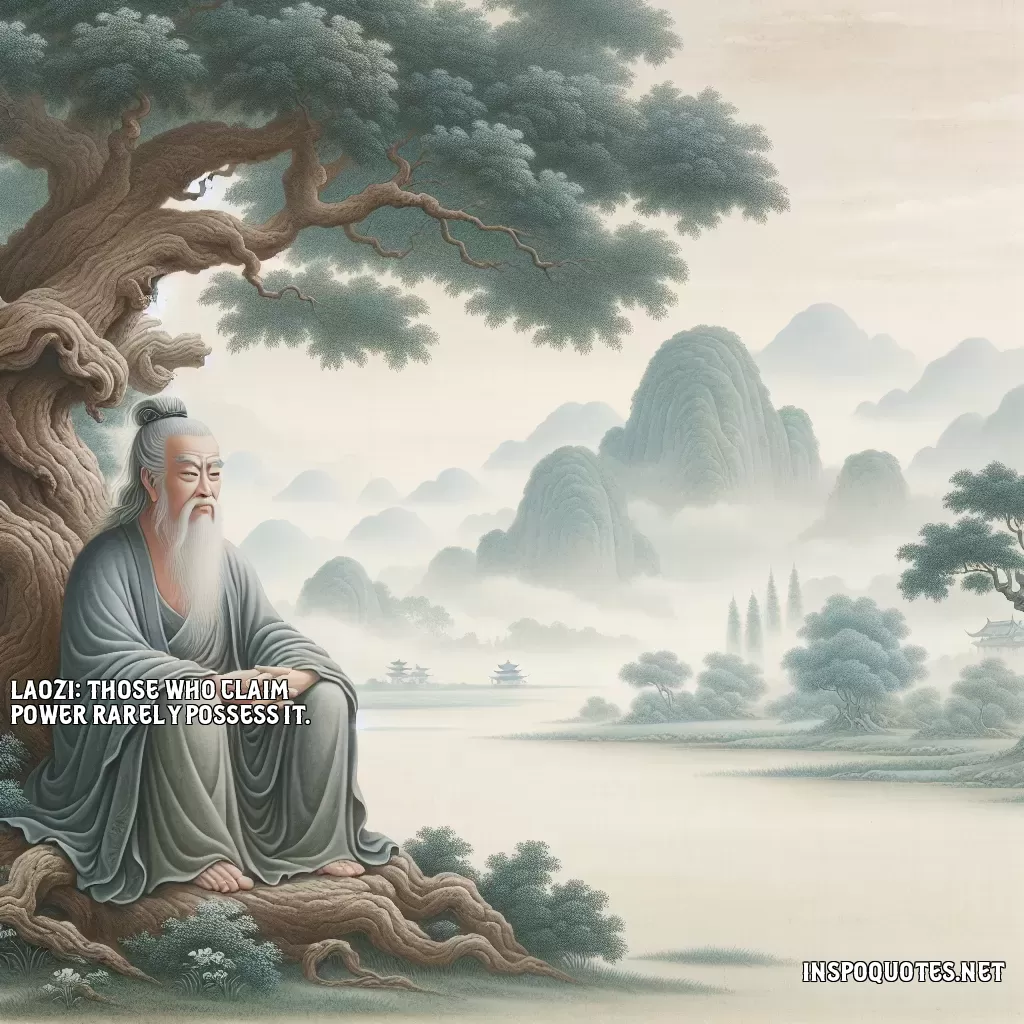
Laozi: Those who claim power rarely possess it.
Author: Laozi
👁️ 3 views
The quote "Those who claim power rarely possess it" by Laozi reveals deep insights into the nature of true power and authority. At its core, the quote suggests that genuine power does not need to be overtly declared or demonstrated; rather, it is inherently recognized by those around it. Laozi, a central figure in Taoist philosophy, often emphasized the importance of humility, simplicity, and the natural order of things. In this context, the quote can be seen as a critique of superficial displays of power. True power, according to Laozi, is not about domination or control but about influence and authenticity. Those who truly possess power are often not the ones who feel the need to boast about it, because their power is evident through their actions, wisdom, and the respect they naturally command. On a deeper level, the quote also suggests that those who assert their power aggressively may be doing so to compensate for a lack of actual authority or competence. This could stem from insecurity or a misunderstanding of what real power entails. In contrast, a person who genuinely possesses power will likely be more restrained, choosing to lead by example and allowing their authority to manifest organically. This principle can be applied to various domains, from leadership and politics to personal relationships. Leaders who rely on intimidation or loud assertions to prove their authority might not have the skills or the respect of their followers to back up their claims. Meanwhile, true leaders inspire and influence through their actions, wisdom, and the respect they earn quietly over time. Thus, Laozi's words encourage us to reconsider our perceptions of power and to value integrity, authenticity, and quiet influence over loud declarations.
Quote By: Laozi
Laozi, also known as Lao Tzu, was an ancient Chinese philosopher and writer, traditionally considered the founder of Daoism (Taoism) and attributed as the author of the "Dao De Jing" (Tao Te Ching), a foundational text of the philosophy. Believed to have lived in the 6th century BCE during the Zhou Dynasty, Laozi's teachings emphasize harmony with the Dao (Tao), natural simplicity, and the pursuit of wisdom through humility and non-action (wu wei). Revered as a sage, his influence extends beyond philosophy into spiritual and political thought throughout Chinese history and beyond.
Bio added on: 2025-02-13 13:50:25